Anyone familiar with Popeye the Sailor Man has heard countless times of the benefits of spinach.
Any time he’s in a moment of distress and needs to rely on his strength to save himself or his girl Olive Oyl, Popeye simply pops open a can, eats it all in a giant gulp, and voila – he conquers his foes.
While your daily life may not be as eventful as Popeye’s, you could still see some great health effects from eating spinach on a regular basis.
Though, I have to add a disclaimer: unfortunately, you won’t grow giant muscles instantaneously.
These days, more popular foods like kale or chard have taken the spotlight when it comes to what’s trendy in the health world, but spinach is still fighting the good food fight alongside the rest.
So, let’s explore it a little more – here are 9 reasons why you should be eating more spinach.
1. Extremely Nutritious
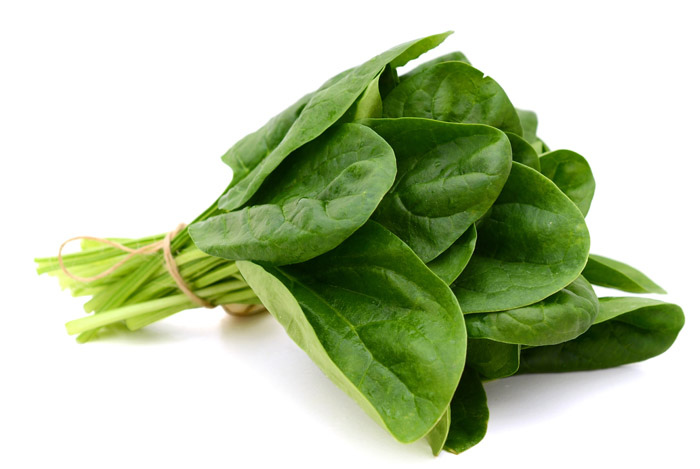 From the top, there can be no doubt that spinach is full of good-for-you nutrients that you definitely can’t ignore.
From the top, there can be no doubt that spinach is full of good-for-you nutrients that you definitely can’t ignore.
Its leaves contain minerals like potassium, magnesium, copper, zinc, and manganese. These help the body regulate body fluids, cell functions, heart rate, and blood pressure. Plus, they help create sturdy, helpful enzymes.
If you’re suffering from an iron deficiency, spinach should be your go-to leafy green vegetable. Iron is a trace element needed by the body to produce red blood cells and helps reduce oxidation of cells by acting as a co-factor for enzymes in cellular metabolism. And 100 grams of spinach contains 25% of your daily intake of iron!
Spinach is one of the greatest sources of vitamin K available. One single cup of boiled spinach can supply you with 1100% of your daily value of vitamin K!
And, for all its vitamins and minerals, it comes in at less than 50 calories a serving. Great for your health and your waistline – it’s a win-win.
2. It’s a Superfood!
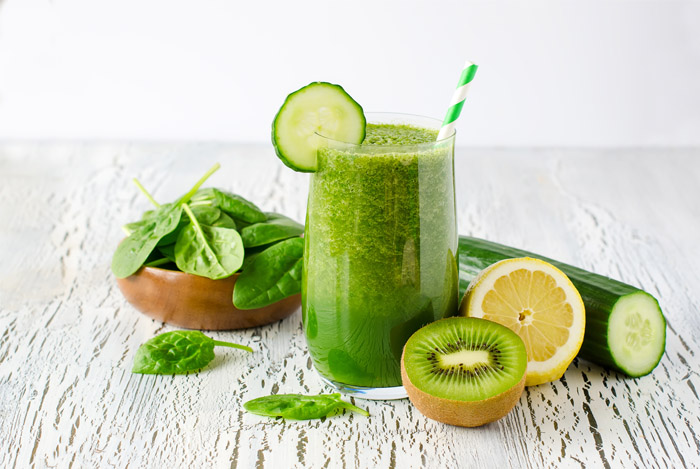 Now that you’ve seen the amount of nutrients in a serving of spinach, you might be wondering where exactly that places it in comparison to all the other fruits and vegetables out there.
Now that you’ve seen the amount of nutrients in a serving of spinach, you might be wondering where exactly that places it in comparison to all the other fruits and vegetables out there.
The Centers for Disease Control and Prevention (CDC) released a study in 2014 performed by William Paterson University where they ranked foods based on their “nutrient density”.
Every food on the list was in one way or another considered to be a nutrient powerhouse – commonly referred to as a “superfood”.
Out of dozens of foods, spinach placed at the number five spot, ranking above such vegetables as kale, parsley, chicory, lettuce, and other leafy greens.
Obviously, spinach is pretty highly regarded, even in the highest realms of public health concern. Remember, though, that superfoods are always considered part of well-balanced, highly nutritious diets.
3. Boosts Immune System
 One of the key factors going into the decision to label spinach a superfood was its abundance of healthy antioxidants. Its fresh leaves are a great source of the vital antioxidants vitamin A, vitamin C, and antioxidant flavonoids like lutein, zeaxanthin, and beta-carotene.
One of the key factors going into the decision to label spinach a superfood was its abundance of healthy antioxidants. Its fresh leaves are a great source of the vital antioxidants vitamin A, vitamin C, and antioxidant flavonoids like lutein, zeaxanthin, and beta-carotene.
Antioxidants help tremendously in the fight against cancers and chronic diseases brought on by dangerous free radicals – molecules that cause the spread of oxidation among the cells in your body.
Vitamin C is great for the body’s immune system, helping to develop resistance against infections and fight off free radicals. 100 grams of fresh spinach has a whopping 47% of your recommended daily allowance of vitamin C.
Vitamin A is also considered an antioxidant, fighting off toxins, bacteria, viruses, and any other nasty little invaders seeking to destroy your cells and cause illnesses and disease.
Spinach lowers your body’s natural inflammatory response, which has been linked to many cancers and diseases, reduces damage to your cells, and even aids in digestive health. When your body absorbs the nutrients better from all the foods you consume, you contribute even greater to your health through your regular diet.
4. Enhances Muscles
 While they may not suddenly double in size, your muscles can reap the benefits of all spinach has to offer.
While they may not suddenly double in size, your muscles can reap the benefits of all spinach has to offer.
A study by researchers at the Karolinska Institute in Sweden found that after three days of consuming 300 grams of spinach each day, participants were able to reduce the amount of oxygen required to power their muscles while exercising by five percent.
Spinach is packed with nitrates that are converted to nitric oxide (NO), a molecular component of great importance to many pathological and physiological functions of the body. Because NO is an anti-inflammatory, anti-thrombotic, and a vasodilation agent, it can result in a wide range of excellent health effects.
As mentioned above, spinach contains a lot of nutrients great for the body as a whole, including the muscles. Magnesium in particular is one of the greatest benefits spinach has to offer.
Even once spinach has been cooked, it maintains a great amount of the nutrient, which contributes to more than 300 bodily functions. Magnesium primarily regulates potassium, sodium, and calcium, together controlling neuromuscular signals and muscle contractions. This is why people with a magnesium deficiency often complain of cramps and muscle pain.
5. Stronger Bones
 Because of its high levels of vitamin K and magnesium, the National Osteoporosis Foundation recommends eating spinach for better bone health.
Because of its high levels of vitamin K and magnesium, the National Osteoporosis Foundation recommends eating spinach for better bone health.
Vitamin K is being recognized more and more as one of the most essential nutrients for bone health. A review of studies published in Nutrition found that vitamin K could reduce your risk of fracture, and can work in tandem with vitamin D to increase your bone density, and help your body’s calcium balance to benefit your bones.
In 1999, a study published in the American Journal of Clinical Nutrition showed that women who consumed lower amounts of vitamin K in their diets had higher risk of hip fractures.
A later study in 2003 published in the American Journal of Clinical Nutrition found that lower levels of vitamin K were linked to low bone density in women, though not in men.
As men age, however, they begin to demonstrate more benefits from their vitamin K intake. A study published in 2000 found a reduced risk of hip fracture in both elderly women and elderly men when they received more vitamin K through their diets.
Stronger bones means a stronger body – don’t take these benefits lightly.
6. Fights Cancer
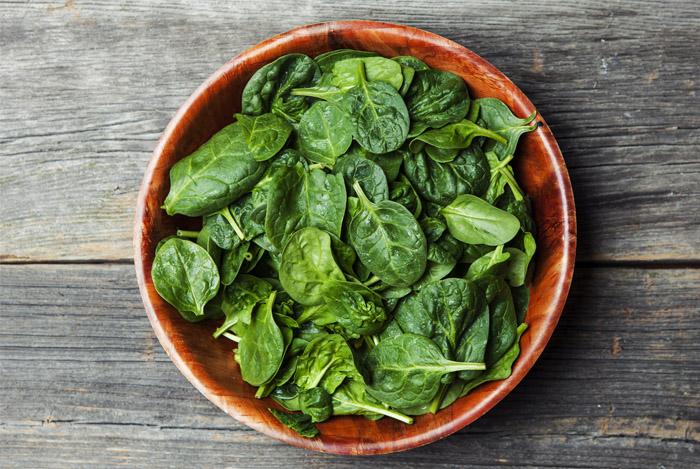 One of the most challenging fronts the medical field has to fight in is the battle against the many types of cancer human beings are susceptible to. And spinach is being shown to be a great weapon in this fight.
One of the most challenging fronts the medical field has to fight in is the battle against the many types of cancer human beings are susceptible to. And spinach is being shown to be a great weapon in this fight.
A Harvard University study published in the Journal of Cancer found that women eating diets rich in the flavonoid kaempferol, found in spinach and other superfoods, had a 40% reduction in risk of ovarian cancer compared to women who consumed the least amount.
Another study by Harvard Medical School published in the International Journal of Cancer found that a flavonoid in spinach, apigenin, showed a high correlation between its intake and lowered risk of ovarian cancer.
A carotenoid found in spinach known as neoxanthin can actually kill prostate cancer cells. Researchers published a study in the Journal of Nutrition that found that prostate cancer responded to this carotenoid by converting it into a different compound in the intestinal tract, which forced prostate cancer cells into a resting state to prevent any further replication.
Researchers found a correlation between lowered breast cancer risk and diets high in beta carotene and vitamin A – found commonly in spinach and carrots. When the subjects ate these vegetables more than twice weekly (compared to not eating them at all), the risk of breast cancer was reduced by 44%.
So, if you’re looking to equip yourself against the threat of cancer, choose spinach.
7. Slows Down Cognitive Decline and Aging
 The consumption of vegetables, including spinach, has been linked to effects that slow the aging process.
The consumption of vegetables, including spinach, has been linked to effects that slow the aging process.
Studies have shown that spinach protects the brain against age-related diseases and can even aid in repairing existing damage to the cerebral cortex as the result of a stroke.
Because of its antioxidant content, spinach has been demonstrated to reduce inflammation and oxidative stress that leads to declining quality of cognition, behavior, and motor skills.
The antioxidants found in spinach in particular have also been suggested to delay both the mental and physical symptoms of entering old age. Animal studies have shown that groups given spinach supplements demonstrated reversals in age related signs of impairment, and in some cases even overcame their impairments.
8. Reduces Asthma Symptoms
 Asthmatics are often faced with the risks of an asthma attack or the very real and frustrating side-effects of day-to-day activity, shortness of breath, wheezing, coughing, etc.
Asthmatics are often faced with the risks of an asthma attack or the very real and frustrating side-effects of day-to-day activity, shortness of breath, wheezing, coughing, etc.
But spinach, thanks to its high levels of beta-carotene and other helpful nutrients, can help asthma sufferers reduce their symptoms.
A study published in the Annals of Asthma, Allergy, and Immunology found that people who suffered from asthma symptoms after intense exercise sessions did not develop those same symptoms after having consumed 64 milligrams of beta-carotene in a week.
The high levels of magnesium found in spinach, already mentioned for its numerous other benefits, could also prove a benefit for asthma sufferers. However, studies have shown that magnesium’s effects in fighting asthma are largely intravenous. Whether or not simply eating foods high in magnesium could contribute to reducing asthma symptoms is yet to be determined.
So, if you have asthma symptoms and are looking for more dietary remedies for fighting your symptoms, consider adding more spinach to your meals.
9. Heart Health
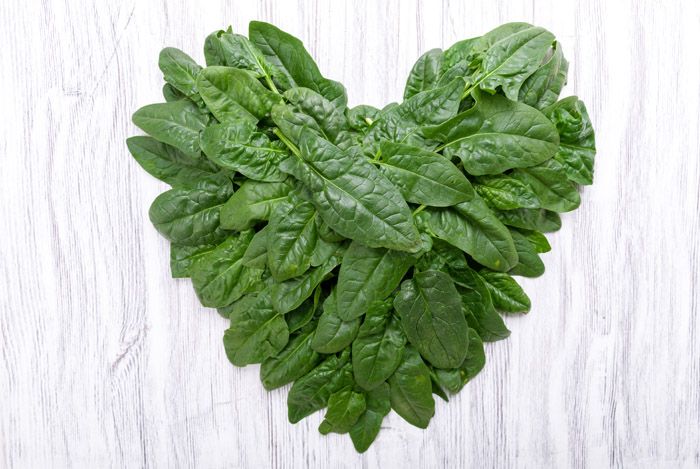 Because of the beta-carotene, vitamin C, and the whole host of other nutrients at work in spinach leaves, cholesterol is simply no match for the strength of your heart.
Because of the beta-carotene, vitamin C, and the whole host of other nutrients at work in spinach leaves, cholesterol is simply no match for the strength of your heart.
Folate plays a considerable role for heart health too. The levels of the amino acid homocysteine, associated commonly with heart disease, stroke, cognitive decline, and osteoporosis, are lowered by the effects of folate in cooperation with vitamin B6 and betaine.
The potassium and magnesium in spinach also aid in strengthening your heart by helping to lower your blood pressure and reduce your risk of cardiovascular disease and stroke.
Research has shown that eating spinach regularly can reduce your risk of having a heart attack in the first place, but more recent findings have shown that the nitrite found in spinach and other leafy green vegetables can help you speed through recovery if you do suffer a heart attack. You’ll suffer less overall cardiac damage, and will be 33% more likely to survive, according to the Proceedings of the National Academy of Sciences.
In Conclusion
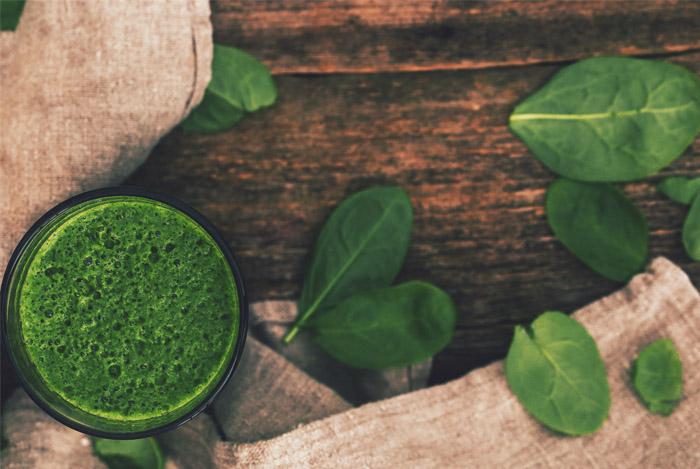 Spinach has been shown over and over to be a great food for your health, and I haven’t even mentioned how awesome it tastes. I always try to keep enough of it around to have it in all my salads, and wherever I can squeeze it into a meal.
Spinach has been shown over and over to be a great food for your health, and I haven’t even mentioned how awesome it tastes. I always try to keep enough of it around to have it in all my salads, and wherever I can squeeze it into a meal.
So, even if you aren’t using it to fight off bullies and villains, you should absolutely include spinach it in your diet.
What are your favorite ways to include spinach in your diet? Leave your response in the comments below!
The post 9 Awesome Things That Happen to Your Body When You Eat Spinach appeared first on Nutrition Secrets.
http://www.nutritionsecrets.com/reasons-why-you-should-be-eating-more-spinach/
No comments:
Post a Comment